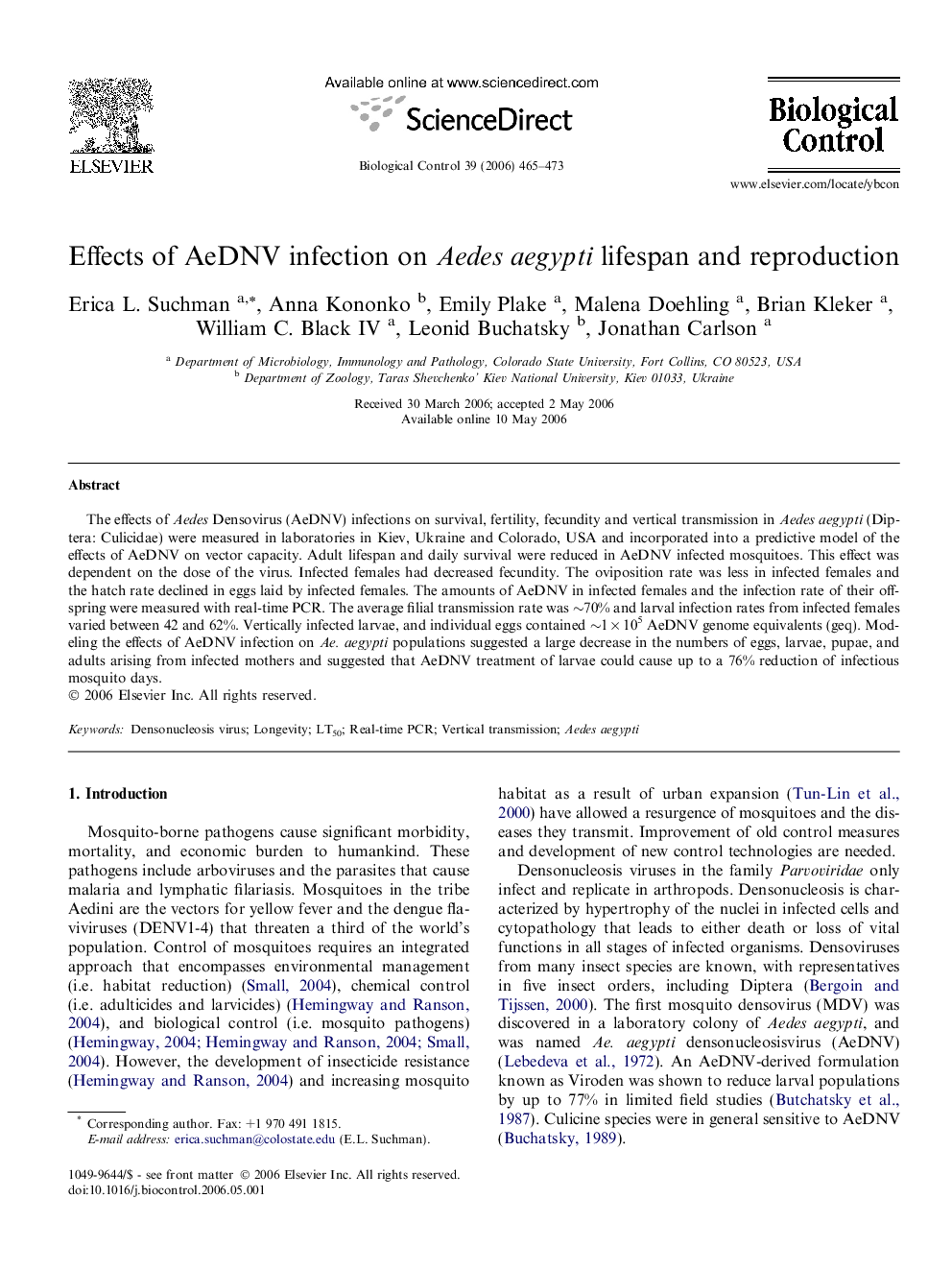| Article ID | Journal | Published Year | Pages | File Type |
|---|---|---|---|---|
| 4505396 | Biological Control | 2006 | 9 Pages |
The effects of Aedes Densovirus (AeDNV) infections on survival, fertility, fecundity and vertical transmission in Aedes aegypti (Diptera: Culicidae) were measured in laboratories in Kiev, Ukraine and Colorado, USA and incorporated into a predictive model of the effects of AeDNV on vector capacity. Adult lifespan and daily survival were reduced in AeDNV infected mosquitoes. This effect was dependent on the dose of the virus. Infected females had decreased fecundity. The oviposition rate was less in infected females and the hatch rate declined in eggs laid by infected females. The amounts of AeDNV in infected females and the infection rate of their offspring were measured with real-time PCR. The average filial transmission rate was ∼70% and larval infection rates from infected females varied between 42 and 62%. Vertically infected larvae, and individual eggs contained ∼1 × 105 AeDNV genome equivalents (geq). Modeling the effects of AeDNV infection on Ae. aegypti populations suggested a large decrease in the numbers of eggs, larvae, pupae, and adults arising from infected mothers and suggested that AeDNV treatment of larvae could cause up to a 76% reduction of infectious mosquito days.
